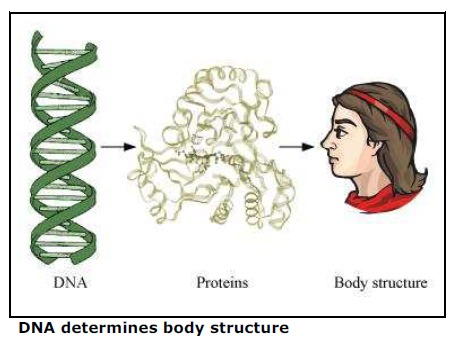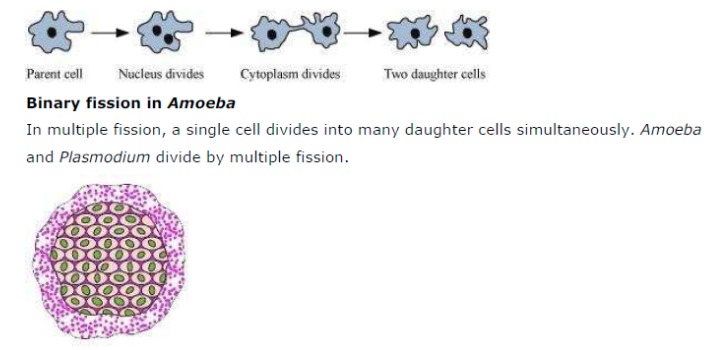NCERT Solutions Class 10 Science Chapter 8 How do Organisms Reproduce? – Here are all the NCERT solutions for Class 10 Science Chapter 8. This solution contains questions, answers, images, explanations of the complete Chapter 8 titled How do Organisms Reproduce of Science taught in class 10. If you are a student of class 10 who is using NCERT Textbook to study Science, then you must come across Chapter 8 How do Organisms Reproduce?. After you have studied lesson, you must be looking for answers of its questions. Here you can get complete NCERT Solutions for Class 10 Science Chapter 8 How do Organisms Reproduce? in one place.
NCERT Solutions Class 10 Science Chapter 8 How do Organisms Reproduce?
Here on AglaSem Schools, you can access to NCERT Book Solutions in free pdf for Science for Class 10 so that you can refer them as and when required. The NCERT Solutions to the questions after every unit of NCERT textbooks aimed at helping students solving difficult questions.
For a better understanding of this chapter, you should also see summary of Chapter 8 How do Organisms Reproduce? , Science, Class 10.
| Class | 10 |
| Subject | Science |
| Book | Science |
| Chapter Number | 8 |
| Chapter Name |
How do Organisms Reproduce? |
NCERT Solutions Class 10 Science chapter 8 How do Organisms Reproduce?
Class 10, Science chapter 8, How do Organisms Reproduce? solutions are given below in PDF format. You can view them online or download PDF file for future use.
How do Organisms Reproduce?
Did you find NCERT Solutions Class 10 Science chapter 8 How do Organisms Reproduce? helpful? If yes, please comment below. Also please like, and share it with your friends!
NCERT Solutions Class 10 Science chapter 8 How do Organisms Reproduce?- Video
You can also watch the video solutions of NCERT Class10 Science chapter 8 How do Organisms Reproduce? here.
Video – will be available soon.
If you liked the video, please subscribe to our YouTube channel so that you can get more such interesting and useful study resources.
Download NCERT Solutions Class 10 Science chapter 8 How do Organisms Reproduce? In PDF Format
You can also download here the NCERT Solutions Class 10 Science chapter 8 How do Organisms Reproduce? in PDF format.
Click Here to download NCERT Solutions for Class 10 Science chapter 8 How do Organisms Reproduce?
Question & Answer
Q.1: What is the importance of DNA copying in reproduction?
Ans : DNA (Deoxyribonucleic acid) is the genetic material found in the chromosomes, which are present in the nucleus of a cell. The DNA is the information site for making proteins and each specific type of protein leads to a specific type of body design. Thus, it is the DNA molecule that determines the body design of an individual. Therefore, it can be concluded that it is the DNA that gets transferred from parents to offsprings and makes them look similar.
Q.2: Why is variation beneficial to the species but not necessarily for the individual?
Ans : Variations are beneficial to the species than individual because sometimes for a species, the environmental conditions change so drastically that their survival becomes difficult. For example, if the temperature of water increases suddenly, then most of the bacteria living in that water would die. Only few variants that are resistant to heat would be able to survive. However, if these variants were not there, then the entire species of bacteria would have been destroyed. Thus, these variants help in the survival of the species. However, all variations are not necessarily beneficial for the individual organisms.
Q.3: How does binary fission differ from multiple fission?
Ans : In binary fission, a single cell divides into two equal halves. Amoeba and Bacteria divide by binary fission.
Q.4: How will an organism be benefited if it reproduces through spores?
Ans : There are many advantages, if an organism reproduces through spores. Advantages of spore formation: Large numbers of spores are produced in one sporangium. Spores are distributed easily by air to far-off places to avoid competition at one place. Spores are covered by thick walls to prevent dehydration under unfavourable conditions.
Q.5: Can you think of reasons why more complex organisms cannot give rise to new individuals through regeneration?
Ans : Simple organisms such as Hydra and Planaria are capable of producing new individuals through the process of regeneration. The process of regeneration involves the formation of new organisms from its body parts. Simple organisms can utilize this method of reproduction as their entire body is made of similar kind of cells in which any part of their body can be formed by growth and development. However, complex organisms have organ-system level of organization. All the organ systems of their body work together as an interconnected unit. They can regenerate their lost body parts such as skin, muscles, blood, etc. However, they cannot give rise to new individuals through regeneration.
NCERT / CBSE Book for Class 10 Science
You can download the NCERT Book for Class 10 Science in PDF format for free. Otherwise you can also buy it easily online.
- Click here for NCERT Book for Class 10 Science
- Click here to buy NCERT Book for Class 10 Science
All NCERT Solutions Class 10
- NCERT Solutions for Class 10 English
- NCERT Solutions for Class 10 Hindi
- NCERT Solutions for Class 10 Maths
- NCERT Solutions for Class 10 Science
- NCERT Solutions for Class 10 Social Science
- NCERT Solutions for Class 10 Sanskrit
All NCERT Solutions
You can also check out NCERT Solutions of other classes here. Click on the class number below to go to relevant NCERT Solutions of Class 1, 2, 3, 4, 5, 6, 7, 8, 9, 10, 11, 12.
| Class 4 | Class 5 | Class 6 |
| Class 7 | Class 8 | Class 9 |
| Class 10 | Class 11 | Class 12 |
Download the NCERT Solutions app for quick access to NCERT Solutions Class 10 Science Chapter 8 How do Organisms Reproduce?. It will help you stay updated with relevant study material to help you top your class!
The post NCERT Solutions for Class 10 Science Chapter 8 How do Organisms Reproduce? appeared first on AglaSem Schools.
from AglaSem Schools https://ift.tt/38pcY3O
https://ift.tt/3jmyZqk https://ift.tt/3jmyZqk








إرسال تعليق